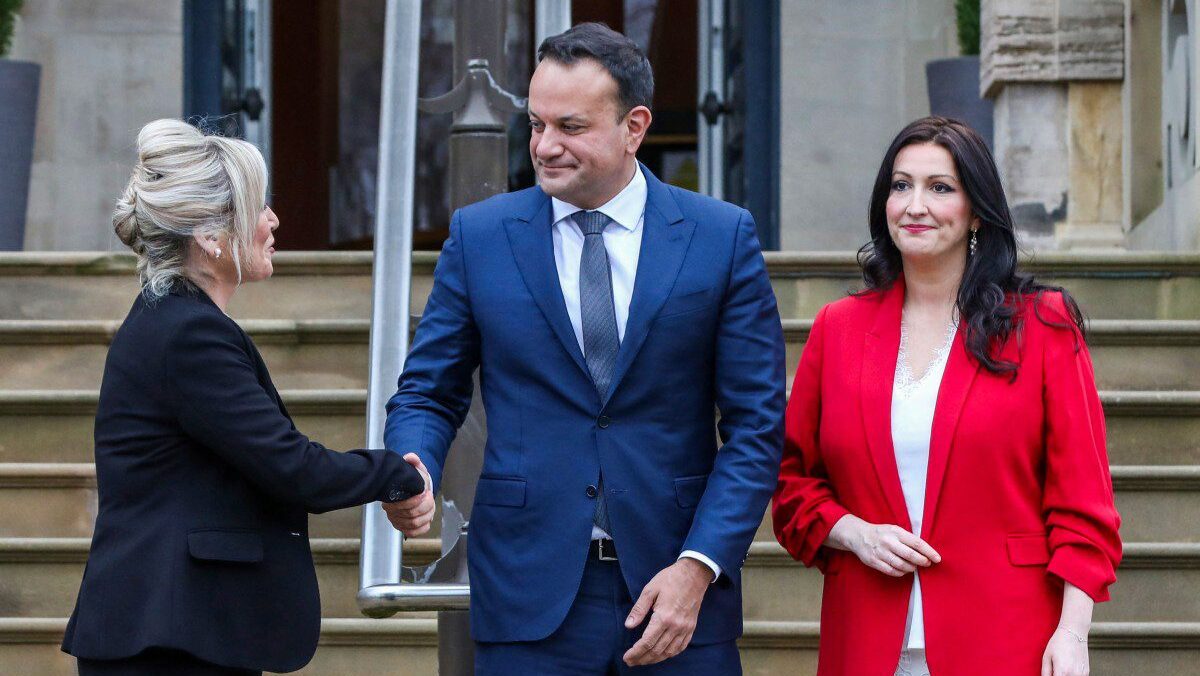
Ireland’s Prime Minister Leo Varadkar (C) shakes hands with newly appointed Northern Ireland’s First Minster, Sinn Fein’s Michelle O’Neill (L) next to newly appointed Northern Ireland’s deputy First Minster, Democratic Unionist Party’s Emma Little Pengelly (R) upon arrival at Stormont Castle, in Stormont, on February 5, 2024.
Photo: PAUL FAITH / AFP
The restoration of Northern Ireland’s power-sharing government by unionist—that is, pro-UK—politicians has brought about the appointment of the country’s first ever nationalist leader. The weight of this occasion was not lost on the new first minister, Sinn Fein Vice President Michelle O’Neill, who was all smiles as she “made the most” of the event.
Northern Ireland was established at the partition of Ireland in 1921. It remained a part of the United Kingdom thanks to the overwhelming unionism of its population, while the rest of Ireland became the Irish Free State, now the Republic of Ireland. Since this time, Northern Ireland has been led only by pro-union figures—until now.
In May 2022 elections to the Northern Ireland Assembly, the Democratic Unionist Party (DUP) was overtaken by Sinn Fein, which has historically been associated with the Irish Republican Army (IRA) terror group. But O’Neill’s appointment was not possible during the DUP’s now-ended boycott of government since unionist and nationalist politicians are obliged to share power under the 1998 Good Friday peace agreement.
While Northern Ireland’s first and deputy first ministers technically have equal power, the role of first minister has more symbolic significance than that of deputy FM, now held by the DUP. O’Neill, who comes from an IRA family and believes the IRA had “no alternative” to violence, is well aware of this fact, herself describing the appointment as “historic.” Former Sinn Fein President Gerry Adams, himself said to have been a “leading member” of the IRA “at all material times,” was among those in the public gallery watching O’Neill’s appointment.
The new leader describes herself as “First Minister for All,” but is open about having her sights on pulling Northern Ireland out of the UK. She suggested over the weekend that a referendum on unification with the Republic of Ireland could take place within the next decade. The republican phrase Tiocfaidh ár lá, meaning “our day will come,” has been repeated in countless media reports following her appointment.
The DUP’s Emma Little-Pengelly has worked to remind observers that her deputy FM position is of equal worth to that of O’Neill’s, hailing the appointment of “Michelle and myself as first ministers.” But her party knows just as well as Sinn Fein does that this is a big moment which unionists will have to put a lot of work into overturning.
